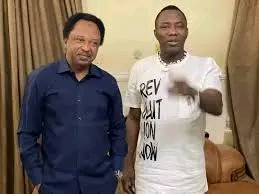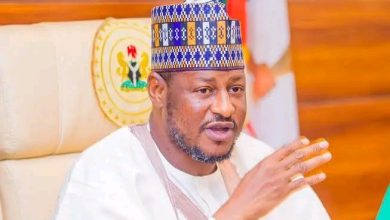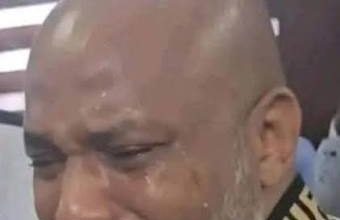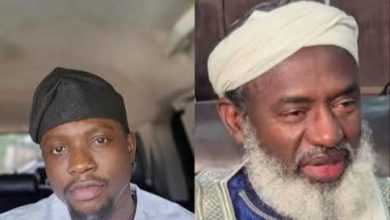Sowore Fires Back: “Don’t Twist the Narrative” — Heated Exchanges Erupt as Shehu Sani’s Courtroom Comparison Sparks Nationwide Debate

By Passman Akpos
A fresh wave of controversy has erupted across Nigeria’s political landscape after activist Omoyele Sowore dismissed comparisons suggesting he “behaves” better in court than the detained IPOB leader, Mazi Nnamdi Kanu. The remarks—circulating widely online—follow a commentary by former Kaduna Central Senator, Shehu Sani, who highlighted Sowore’s courtroom composure and reliance on strong legal teams.
But Sowore, in a strongly worded response, rejected claims that his disposition in court implies Nnamdi Kanu’s reactions were inappropriate.
> “My conduct in court has never been about agreeing with the judge… There are countless videos of me challenging judges openly, even when my own lawyers felt otherwise. This is not about ‘behavior.’ It is about the integrity of the courtroom and the right to resist judicial abuse.”— Omoyele Sowore
He urged the public—and specifically Shehu Sani and Barrister Hamza Nuhu Dantani—to avoid twisting narratives that reduce Kanu’s courtroom defiance to mere misconduct instead of alleged systemic injustice.
“Stop That Talk!” — Nigerians Drag Shehu Sani Over Sowore–Kanu Comments
Tarakirivoice first reported the uproar triggered by Sani’s reflections on Sowore’s legal strategy and Kanu’s ongoing judicial saga. Sani praised Sowore’s unwavering reliance on legal counsel, describing it as a legacy inherited from human rights icons Gani Fawehinmi and Beko Ransome-Kuti.
> “Using the instrument of the law to tackle persecution is very important… When you walk into trouble with the state, you must learn how to walk out of it.”— Shehu Sani
But his comments ignited fierce backlash online.
“The Judgment Was Decided Long Before the Trial” — Public Fires Back
Many Nigerians rejected Sani’s perspective, arguing that legal strategy becomes ineffective in politically sensitive prosecutions.
One commenter wrote bluntly:
> “Even if MNK gathers all the SANs in Nigeria, his case was already decided.”
Another attacked the foundation of Sani’s argument:
> “So Nigeria has judiciary? They take orders from above.”
Some insisted that Kanu’s fate was politically sealed from the start:
> “Even if he repented, he would never be reintegrated with any juicy appointment.”
Supporters Defend Sowore’s Discipline
Not all reactions were hostile. Some Nigerians backed Sani’s observation about Sowore’s consistency.
> “Anywhere you see Sowore, he’s with his lawyers—even on protest grounds.”
Another commenter admired his strategic endurance:
> “He who fights and runs away lives to fight another day.”
Visions, Satire, and Cultural References Flood the Debate
As discussions intensified, users introduced humor, prophecy, and historical comparisons.
A satirical remark questioned Sani’s political journey:
> “How you even enter Senate sef?”
A dramatic prediction followed:
> “I saw a vision: Kanu will be released in 2038, contest for president, and become Nigeria’s Mandela.”
Others suggested the case would be a legal anomaly:
> “Kanu’s sentence will be studied in law school—an innocent man sentenced because he spoke through a microphone from Britain.”
One user invoked the memory of Ojukwu to emphasize long-standing grievances.
A Debate That Mirrors Nigeria’s Deep Divisions
The argument over Sowore’s statement, Shehu Sani’s commentary, and Nnamdi Kanu’s courtroom behavior has exposed yet again the deep polarization surrounding Nigeria’s judiciary, political prosecutions, and perceived state influence over the courts.
Analysts note that:
Sani stresses legal preparedness
Critics emphasize political predetermined outcomes
Sowore insists on judicial integrity
Kanu’s supporters highlight systemic bias and persecution
Together, the conversations reflect the uneasy tension between activism, national security cases, and Nigeria’s struggling public confidence in judicial independence.
As the debates rage on, one thing is clear: this is far beyond courtroom behavior—it is a clash of narratives about justice, power, and the future of political dissent in Nigeria.





